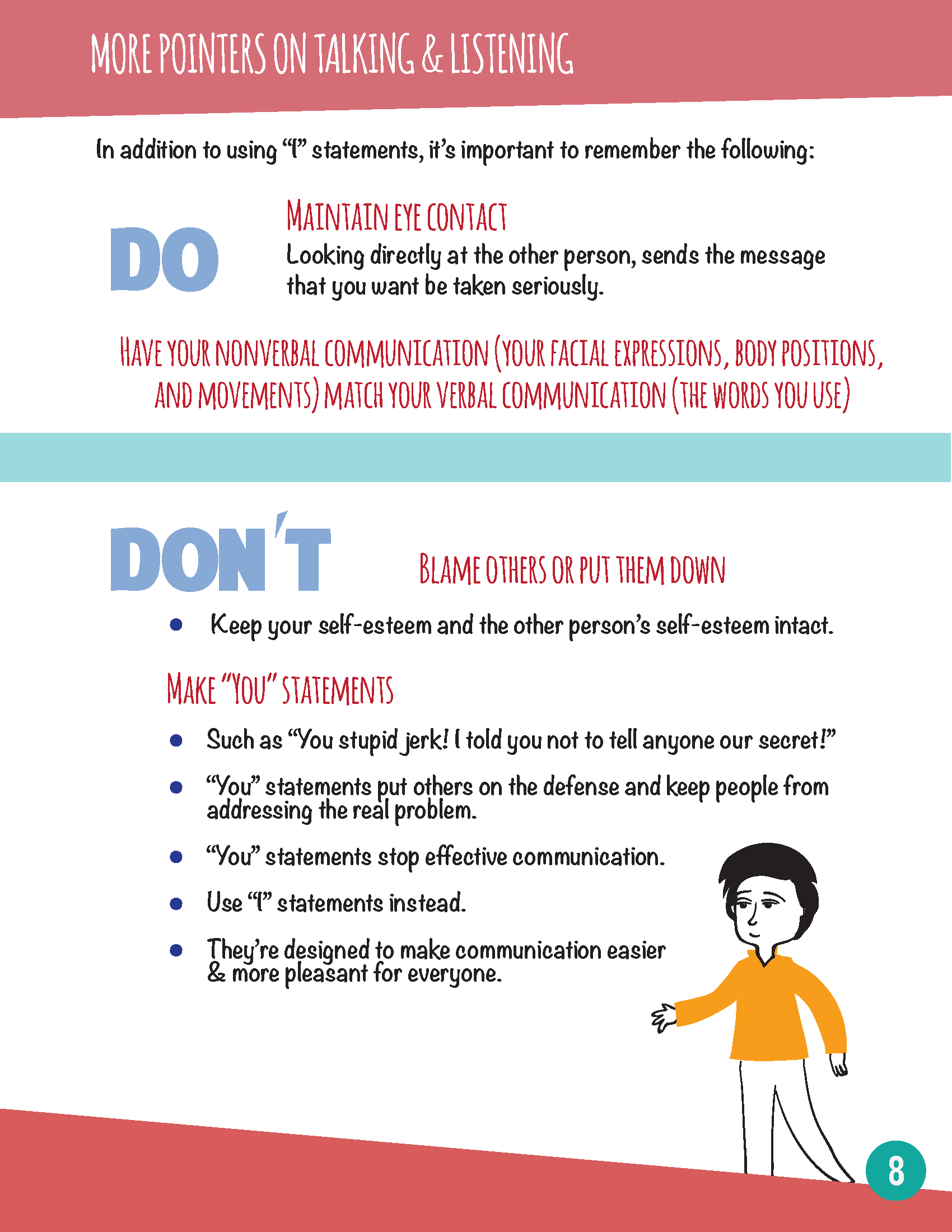
More Pointers on Talking and Listening
In addition to using “I” statements, it’s important to remember the following:
Do maintain eye contact.
Looking directly at the other person, sends the message that you want be taken seriously.
Have your nonverbal communication (your facial expressions, body positions, and movements) match your verbal communication (the words you use).
Don't blame others or put them down.
Keep your self-esteem and the other person’s self-esteem intact.
Don't Make “You” Statements
Such as “You stupid jerk! I told you not to tell anyone our secret!”
“You” statements put others on the defense and keep people from addressing the real problem.
“You” statements stop effective communication.
Use “I” statements instead.
They’re designed to make communication easier & more pleasant for everyone.
Lesson Progress
- Intro to Conflict Resolution
- How People Behave in Conflict Situations
- Other Characteristics of Aggressive People
- The ABC'S of Conflict Resolution
- Other Important Tips
- Skill Building "I" Statements
- Skill Building: Reflective Listening
- More Pointers on Talking and Listening
- Listening In Conflict Situations
- Practice Skill Building “I” Statements
- Skill Building: Reflective Listening